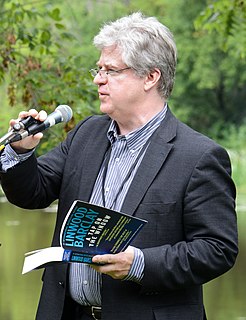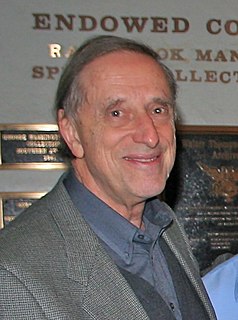Цитата С. Дж. Розана
То, что делают авторы детективов, глубже связано с культурным голодом. Преступность важна. Когда вы открываете книгу, в которой есть мертвое тело, это имеет значение. Это имеет большее значение, чем определенный уровень пригородной тоски; это действительно так.
Связанные цитаты
Большинство американских писателей сегодня выбрали пассивное непротивление вещам такими, какие они есть, создавая потоки стихов о своих личных тревогах и аномии, каскады рассказов и реки романов, одержимых нюансами семейных отношений — пригородные шалости — шикарный бутик, торговый центр, литературная мыльная опера. Когда они высказываются по спорным вопросам, они нападают не на пороки нашего времени, а на коллег-писателей, которые могут настаивать на жалобах.
Возможно, шифрование усложняет расследование определенных преступлений. Это может закрыть некоторые методы расследования или затруднить доступ к определенным видам электронных доказательств. Но это также предотвращает преступность, делая наши компьютеры, нашу инфраструктуру, нашу медицинскую и финансовую отчетность более защищенными от преступников. Это предотвращает преступность.
Как только я заинтересовался организованной преступностью, особенно еврейской организованной преступностью, я очень ею заинтересовался. Я узнал, что, как и моя рассказчица Ханна, я по-своему пишу детективы. Преступность с большой буквы — это тема, на которой я застрял — даже Sway в определенном смысле о «преступности». В преступлении хорошо то, что оно позволяет вам решать некоторые важные вопросы.
Остерегайтесь превратиться во врага, которого вы больше всего боитесь. Все, что для этого нужно, — это яростно наброситься на того, кто причинил вам тяжкий вред, заявив, что в этом мире имеет значение только ваша боль. В этот момент вы совершите преступление не только против тела этого человека, но и против собственного воображения.
Лучшие криминальные истории всегда рассказывают о самом преступлении и его последствиях — вы знаете, «Преступление и наказание» — это классика. Где у вас есть преступление и его последствия, это история, но рассмотрение преступления и последствий заставляет вас думать об обществе, в котором происходит преступление, если вы понимаете, что я имею в виду.
Любовь к фотографии и желание стать художником — все это закончилось в процессе кинопроизводства. В профессиональном плане странно быть связанным, потому что это связывает вас с архитектурой, связывает вас с живописью, связывает вас с писателями, с актерами. Он соединяет вас со всеми видами искусства.






































